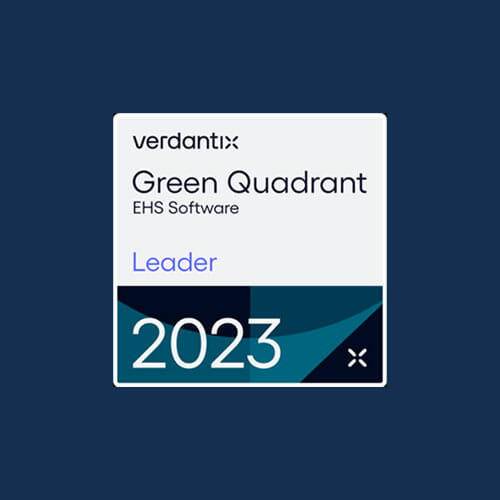Over the last few years, COVID-19 and the social justice movement have been stark reminders of the importance of diversity, equity and inclusion (DE&I) in all aspects of our society. The business world is no exception. Expectations placed on companies have increased. Investor and consumer interest in environmental, social and governance (ESG) factors, including DE&I, have also notably increased.
Investors, customers and employees are also becoming more aware of companies’ social responsibilities. They expect that businesses engender positive impacts in relation to DE&I through their policies, processes and behaviours. Both within the organization and throughout including their supply chains.
In a recent survey of supply chain organizations, by Gartner and the Association for Supply Chain Management (ASCM), the following trends emerged in relation to engagement with DE&I issues and where businesses are currently focussing their efforts:
- 62% of supply chain organizations are looking at the dimensions of ethnicity/race as part of their recruitment strategy.
- 30% of the full-time supply chain workforce are people of colour, but only 9% of supply chain VPs are people of colour.
- 41% — about 3 of every 7 — of supply chain organizations have no plans to improve DEI.
- Most DEI initiatives in place at supply chain organizations prioritize education and awareness-raising (30%), followed by recruiting (20%) and integrated pipeline planning (20%).
In this blog, Cority discusses the importance of Diversity, Equity & Inclusion (DE&I) in supply chains. We also touch on the benefits of implementing a supplier diversity program.
What is DE&I in business?
Diversity, Equity, and Inclusion, or DE&I, is a term that broadly outlines the efforts an institution takes to create a more welcoming environment for people or companies that are less privileged.
The Independent Sector defines DE&I in the following way:
Diversity includes all the ways in which people differ. It encompassing the different characteristics that make one individual or group different from another. Diversity is often used in reference to race, ethnicity, and gender. However, we embrace a broader definition of diversity that also includes age, national origin, religion, disability, sexual orientation, socioeconomic status, education, marital status, language, and physical appearance.
Equity is the fair treatment, access, opportunity, and advancement for all people, while at the same time striving to identify and eliminate barriers that have prevented the full participation of some groups. Improving equity involves increasing justice and fairness within the procedures and processes of institutions or systems, as well as in their distribution of resources. Tackling equity issues requires an understanding of the root causes of outcome disparities within our society.
Inclusion is the act of creating environments in which any individual or group can be and feel welcomed, respected, supported, and valued to fully participate. An inclusive and welcoming climate embraces differences and offers respect in words and actions for all people.
Our population becomes more diverse. Thus, companies that don’t invest in DE&I in their workforce and supplier base face the risk of being behind. Businesses that prioritize DE&I have a greater positive impact on their employees, customers, suppliers and the communities where they live and work.
Supplier Diversity Programs
DE&I commonly falls under the ‘Social’ pillar of ESG. There has been increased attention to this area from investors who are now incorporating ESG considerations within their investment processes. Investors, business partners and consumers are now demanding transparency into organizations’ diversity programs, metrics and key performance indicators.
Diversity goes beyond an organization’s operational impact. Diversity within supply chains can make supply chains more resilient and adaptable. This is particularly critical now as businesses and industries have been forced to pivot during the pandemic. As more companies look to engage with diverse suppliers, understanding who they are and the key data points for reporting on supplier DE&I has become more important.
A diverse supplier is commonly categorized as a business that is at least 51% owned and operated by an individual or group that is part of a traditionally underrepresented or underserved group. Common examples are small-business enterprises (SBEs), minority-owned business enterprises (MBEs), and woman-owned business enterprises (WBEs). According to the 2019 US Census Bureau Annual Business Survey (ABS), approximately 18.3% (1.0 million) of all U.S. businesses were minority-owned and about 19.9% (1.1 million) of all businesses were owned by women.
Some major companies have long played a role in addressing inequality through supplier diversity programmes that promote an inclusive approach to procurement. One example of this is UPS. Their supplier diversity program, which started in 1992, grew out of its desire to be more inclusive and do what is right. The company now spends $2.6 billion annually doing business with around 6,000 small and diverse suppliers. And aims to increase that spend amount year over year. Under the Small Business Subcontracting Program (FAR 19.7)), the U.S. federal government also requires any contractor whose contract for goods and services is expected to exceed $700,000 ($1.5 million for construction) to set and meet aggressive goals of subcontracting spend with diverse suppliers.
The Benefits Of Supplier Diversity Programs
Many global business leaders waking up to the huge importance of supplier diversity. Thus, businesses that understand how to use this to their advantage will stand to gain a competitive advantage. They will also make tangible positive contributions to a fairer society by working with diverse companies.
As well as helping diverse suppliers to grow, implementing a supplier diversity programme can provide opportunities for buyers including:
- Promote innovation through the introduction of new products, services, and solutions
- Provide multiple channels from which to procure goods and services
- Drive competition (on price and service levels) between the company’s existing and potential vendors
- Enable a company to take advantage of new opportunities for business expansion with the emergence of new consumer needs
- Help to attract new talent when recruiting for a company
A 2019 study for Coca-Cola, found that the individuals who were aware of Coca-Cola’s supplier diversity initiatives were 45% more likely to perceive the brand as valuing diversity. Also, 25% were more likely to think favorably about the brand, and 49% were more likely to use Coca-Cola products.
How Cority’s Supply Chain Sustainability Software Can Help Support DE&I Programs
Cority’s Supply Chain Sustainability Software supports our clients’ DE&I and supplier diversity programs through the gathering and assessment of relevant metrics across a global supplier network.
Cority’s Supply Chain Sustainability Software provides standard DE&I assessment capability and is also fully customisable. Our bespoke assessments can be distributed across different supplier groups or categories. The easy-to-use analysis tools enable companies to track DE&I performance across different suppliers. We also assist with reporting on the diversity of the supply chain as a whole.











